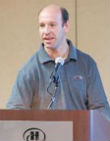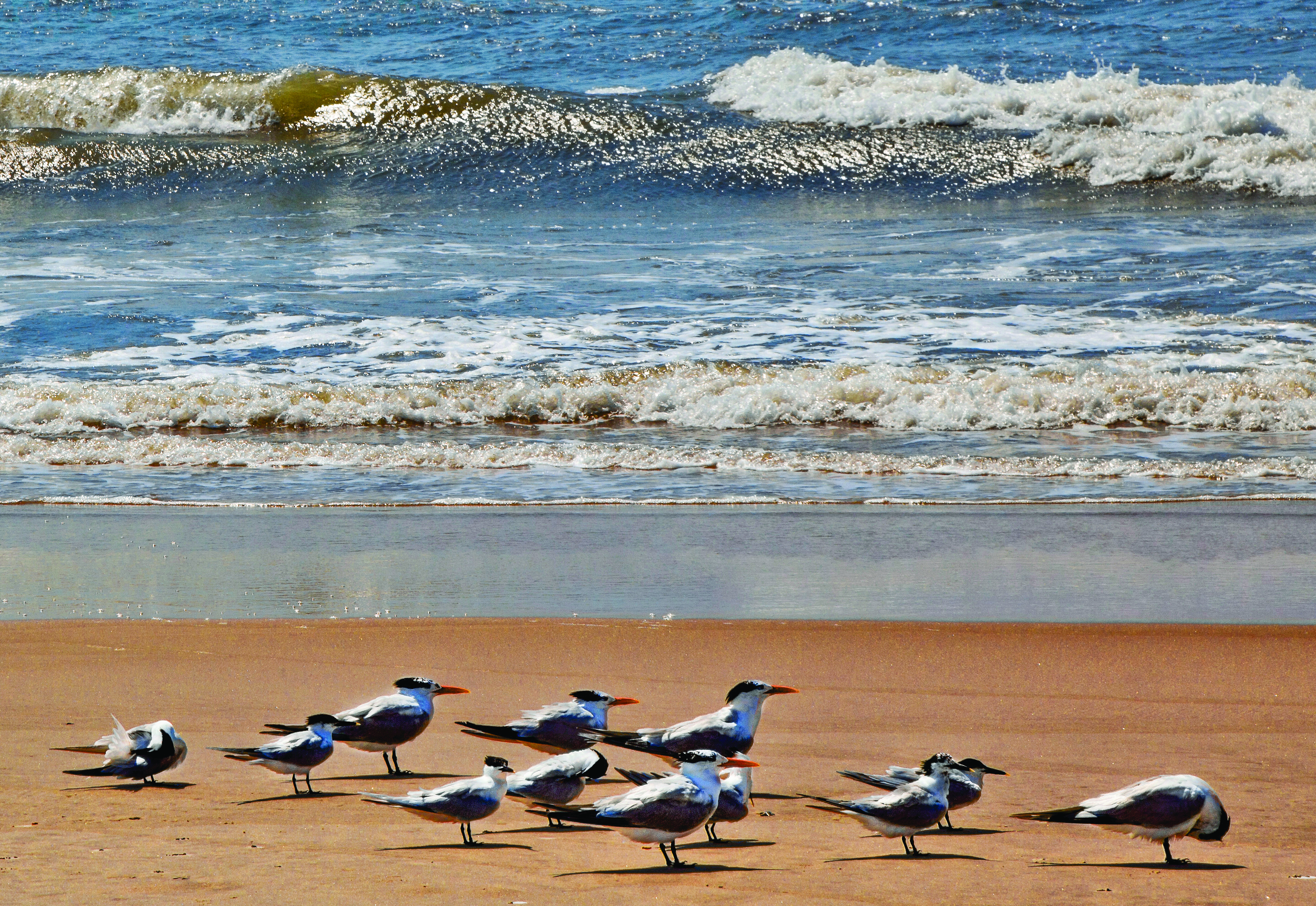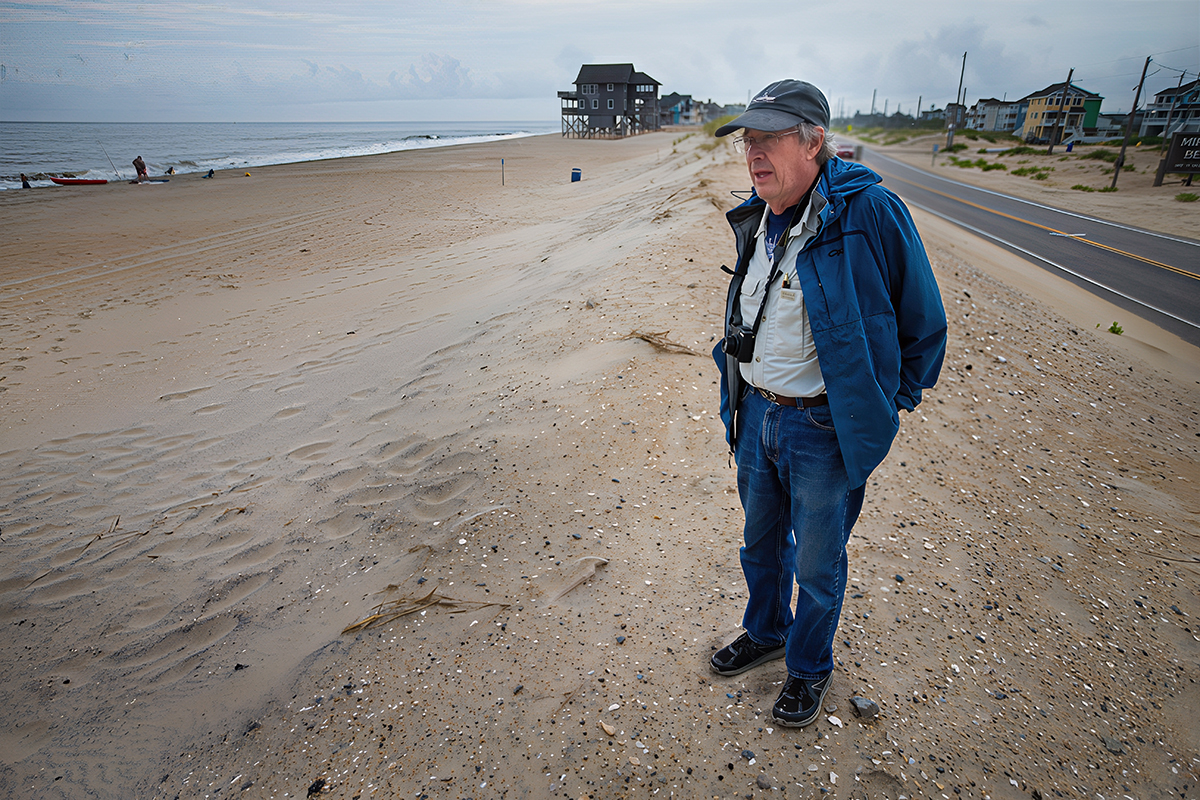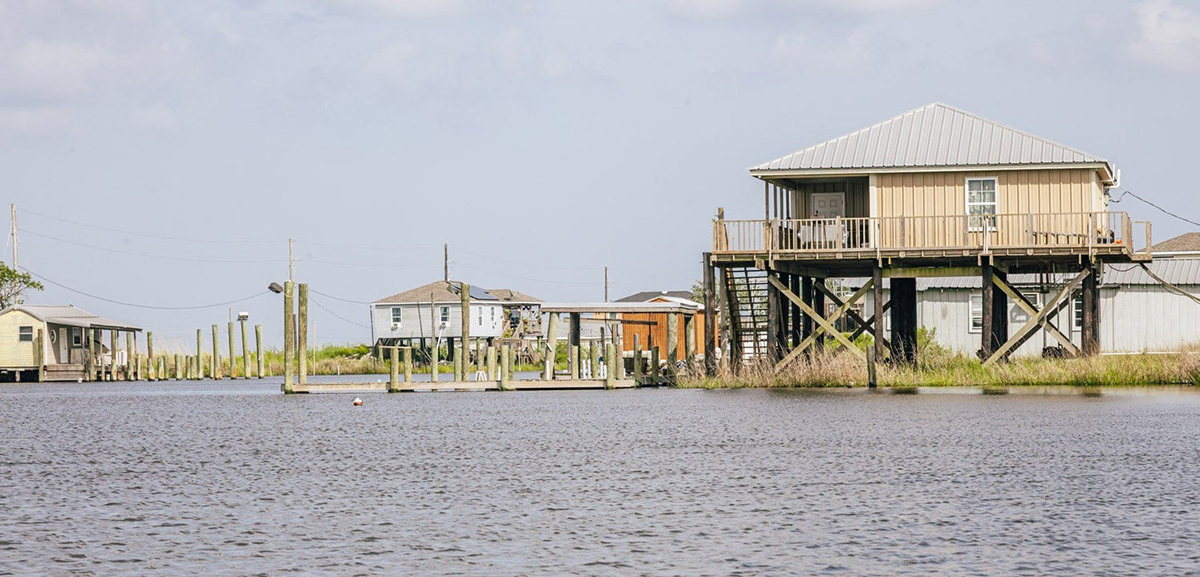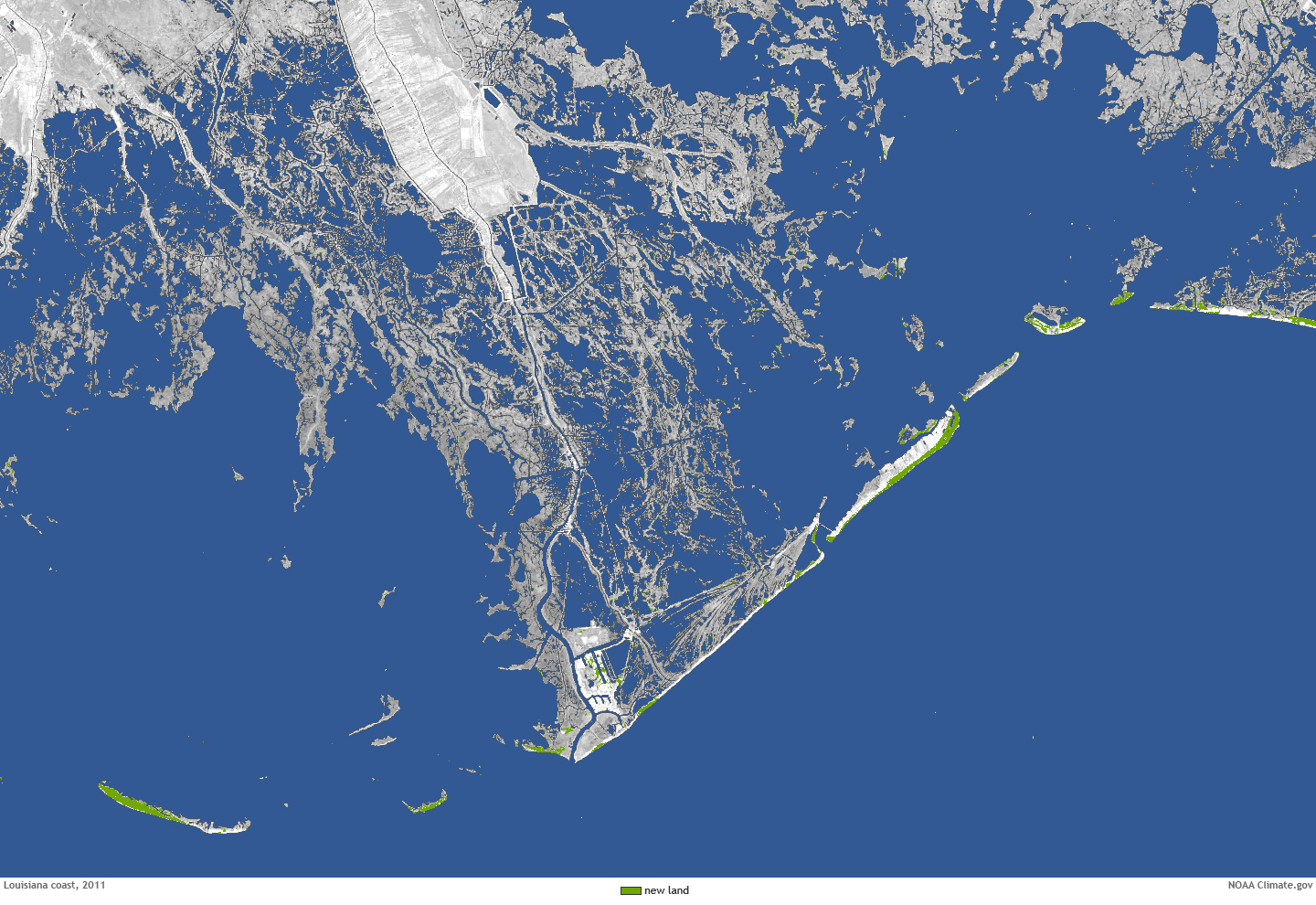Cate Kozak will cover the climate conference that started in Paris this week for Coastal Review Online.
NAGS HEAD — As national leaders and thousands of participants from around the globe poured into Paris this week for what many view as a Hail Mary pass to save the planet from climate change, the town of Nags Head is preparing to host its own modest version of a summit on the issue.
Supporter Spotlight
The two-day workshop in Nags Head, facilitated by North Carolina Sea Grant, will involve the community in information sharing and brainstorming about a future with inevitably higher seas. Coordinators will come to next week’s event armed with perceptions and concerns gleaned from interviews with a cross-cut of residents and officials.
Whether it’s called spring tide, King tide, moon tide or just nuisance flooding, nearly everyone here has noticed that ocean and sound water is breaching dunes and bulkheads more frequently and to a greater degree. As a result, beach erosion is getting worse.
“The number one thing that jumped out at me is generally, a lot of people agree that sea level is rising,” said Jessica Whitehead, Coastal Communities Hazards Adaptation specialist for Sea Grant. “At least we have agreement that something is changing and we have agreement that something will need to be done about it.”
Formally known as the Vulnerability, Consequences, and Adaptation Planning Scenarios, or VCAPS, the public is invited to participate at Town Hall on Dec. 7 from 5 p.m. to 8 p.m. and on Dec. 8 from 10 a.m. until 1 p.m. Local knowledge and input, organizers say, is critical to development of appropriate planning and remediation of climate change.
“It really, I think, is going to be a very useful conversation for the community to have,” Whitehead said. “It’s just a really flexible way for helping a community to deal with whatever nature throws at it.”
Supporter Spotlight
Nags Head is the third community in the state, she said – behind Plymouth and Hyde County – to seek assistance from Sea Grant on addressing climate change.
“How do we make Nags Head more resilient is kind of the bottom line,” said Holly White, Nags Head’s principal planner.
White said the town board had decided at its last retreat to start exploring the potential impacts of sea-level rise to Nags Head, bordered by the Atlantic Ocean and Pamlico Sound. The workshop process and Sea Grant’s end report can help guide the town in responding to the local challenges with confidence.
Coastal scientists consider North Carolina’s Outer Banks to be “extremely vulnerable” to the effects of rising seas, but mitigation or adaptation strategies have yet to be tackled by state policy makers. North Carolina is also one of the states opposing President Obama’s Clean Power Plan that would help the U.S. meet reductions in carbon pollution Obama had promised at the Paris conference, officially the 21st Conference of Parties (COP21) of the United Nations Framework Convention on Climate Change Conference.

“I’ve come here personally, as the leader of the world’s largest economy and the second-largest emitter,” the president said in Paris on Monday, “to say that the United States of America not only recognizes our role in creating this problem, we embrace our responsibility to do something about it.”
At last year’s conference in Peru, more than 180 nations had pledged to cut carbon emissions by using more renewable energy and less fossil fuels. China has also agreed to work toward reducing its carbon output.
Negotiators in Paris are working to nail down an agreement between the nations to keep the rise of global temperature below 2 degrees Celsius, or about 3.6 degrees Fahrenheit, invisible line dividing manageable climate change and severe to catastrophic consequences to the Earth and its oceans.
Virginia Burkett, the chief scientist for Climate and Land Use Change at the U.S. Geological Survey in Reston, Va., said that the Paris event is not a debate about the science behind climate change.
“It builds on and relies on the science,” she said. “But it is a policy-making event.”
Burkett has authored several of the United Nation’s Intergovernmental Panel on Climate Change, or IPCC, reports that the N.C. Coastal Resources Commission’s science panel used in developing its current 30-year draft Sea Level Rise Assessment report.
Burkett said there have been four or five “meta-analysis” of the climate change science, including thousands of articles, books, and peer-reviewed research journals. Of those, 97 to 98 percent of the literature agrees on the science that points to human-caused spikes in greenhouse gases and impacts that include warming oceans and temperatures.
“There are some outliers – and you would expect that,” she said. “But the consensus among scientists globally is very strong.”
According to the state’s sea-level report, the General Assembly does not intend to mandate sea-level policy or a definition of sea-level change for regulatory purposes.
“The current CRC chairman believes it should be addressed more at a local level, rather than coming from the state,” said Michele Walker, a CRC spokeswoman.
The report estimated that by 2045, seas on the Outer Banks could rise between 5.4 inches to 10.6 inches, with a considerably lower rate south of Cape Lookout. The CRC has been directed to study the “economic and environmental costs and benefits to the North Carolina coastal region” of developing sea level regulations and policies, the draft report said.
Walker said that the sea-level rise report is expected to be finished at the Feb. 1 CRC meeting, and delivered to the General Assembly by the end of March.
Greg “Rudi” Rudolph, a member of the science panel and the Shore Protection manager in Carteret County, said that 30-year plan, which will be updated every five years, is consistent with the typical timeframes used in coastal planning.
“I thought the report provided a good tool for the local governments who want to take a hard number and work with it,” he said.
Rudolph said he favors local, rather than state, policy-making to address rising seas, especially when funding realities are considered. “Unfunded mandates and things like that are a big no-no,” he said. “Everybody hates unfunded mandates. I hate them, too.”
Bill Birkemeier, the science panel’s co-chair and a retired coastal scientist who lives on the Outer Banks, said that he has seen sea-level rise with his own eyes. When he moved to Southern Shores in 1980, he didn’t have to worry about storm flooding in his garage. But with Hurricane Irene in 2011, he had to elevate his wife’s vehicle on 2 X 4s to keep the 11-inches of floodwater from the interior of the car.
Birkemeier said that the IPCC report is the best source of data to estimate sea-level rise. “Nothing gets in there without being vetted a million times,” he said.
Still, he said, the estimates based on new sea-level data are “changing by the day,” which tends to make estimation of rising seas a “moving target.”
“Thirty years is relatively easy because all the big stuff happens after 30 years,” Birkemeier said. “There’s more confidence in 30 years. So we need to do this every five years to see if new information moves the curve.”






